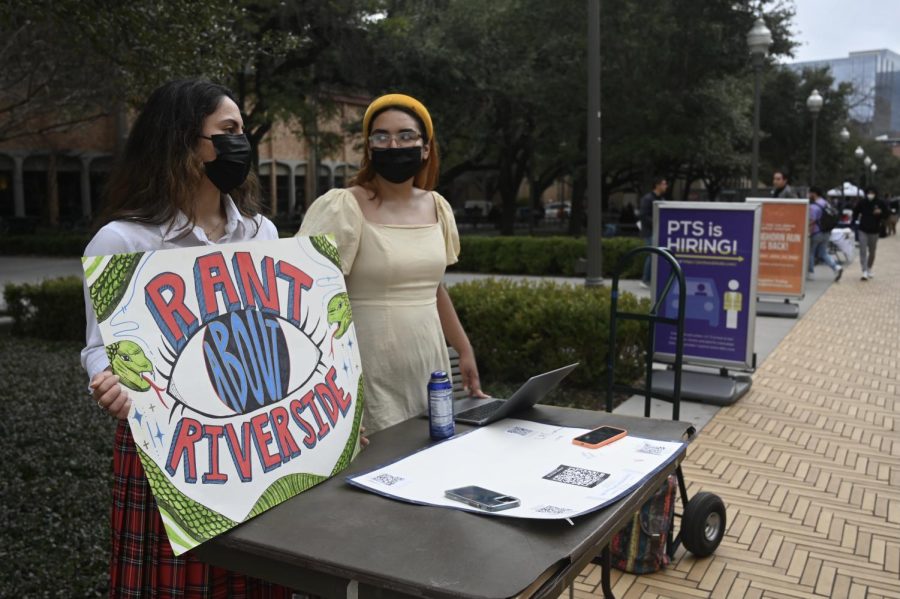UT students call for reliable Riverside transportation
February 25, 2022
Editor’s Note: This article first appeared in the Feb. 21, 2022 in the flipbook.
UT students living in Riverside have experienced delays and service disruptions throughout the first few months of classes. After Route 670 of the UT CapMetro Shuttle — which services the Riverside area — faced severe wait times and cancellations again Tuesday, some residents voiced their concern over transportation accessibility at the College Student Commission on Friday.
Riverside residents also experienced disruptions earlier this month. The route to Riverside often had less available drivers due to the current labor shortage and late start times, said Dottie Watkins, chief customer and operating officer at CapMetro. The College Student Commission is a recently formed advisory board comprised of 12 members representing UT, St. Edward’s University, Huston-Tillotson University and Austin Community College to bring issues concerning higher education to the city council.
“We absolutely, positively apologize for the issues that we experienced on Tuesday,” Watkins said. “Even within the operator shortages that we are experiencing, the experience (on) Route 670 should not have been as poor. It is something that we have since addressed. We updated our procedures, and we will continue to monitor closely to make sure it stays fixed.”
The University is working to ensure that student feedback is shared with CapMetro and provide resources to the campus community, including the UT carpool program and ZipCar, said Eliska Padilla, UT’s issues and communications manager.
Government senior Mariah Sanchez said she and sociology junior Kaitlyn Marcatante, who are members of a Riverside Justice group, tabled on Speedway last week, inviting students to discuss the housing and transportation issues faced by Riverside residents.
Sanchez said Riverside students experience more issues due to unreliable transportation, like going long periods without eating, paying for expensive parking permits and staying on campus all day.
“You have to be really aware (of the bus schedule) the day of,” Sanchez said. “You have to wake up early, and it’s just very inconvenient that we have to be consciously thinking, ‘How are we going to get to school? What’s gonna happen when we wake up? (Are) there gonna be buses tomorrow?’”
Tatum Owens, secretary of the College Student Commission board and UT representative, said students should use the commission to express their concerns.
“The Commission can serve to help Austin students in their transportation issues by connecting them directly to city council, through passing the recommendation based on the concerns of students,” the political communications junior said.
William Ramírez, an economics and humanities honors sophomore and Riverside resident, said he spoke on behalf of the Riverside Justice group at the College Student Commission.
“If people keep showing up to these meetings, they will have to give us solutions that aren’t deflecting the blame on the victims who are affected by the inconsistent bus schedules,” Ramírez said. “I feel like we’ve made a lot of noise and (gained) traction, but I want to ensure that we have not just complained and they heard this complaint. I want tangible solutions.”



